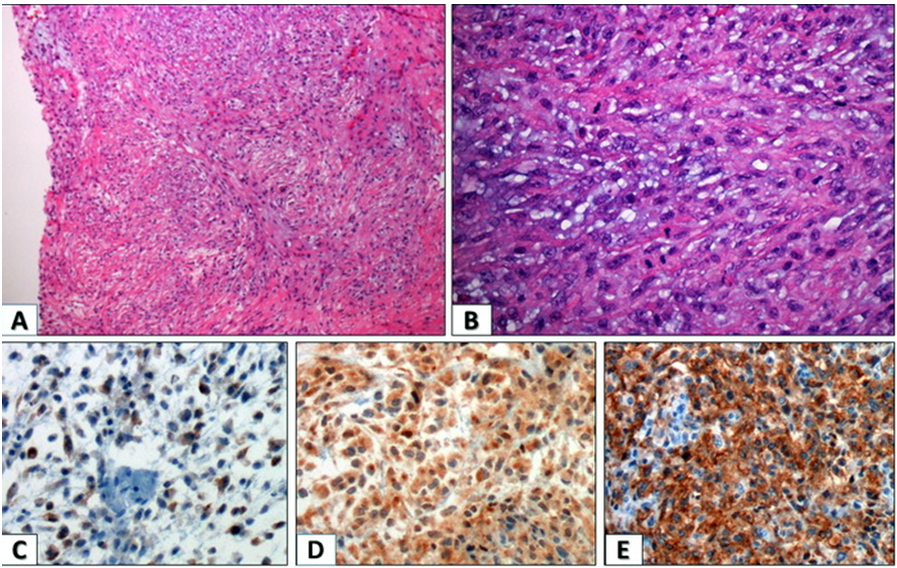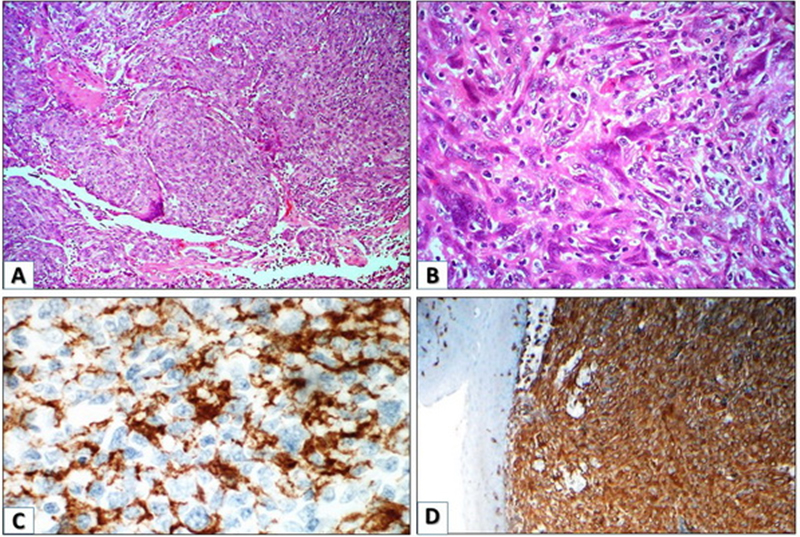 |
Case Report
Nonocclusive mesenteric ischemia and heart failure: A case report and bowel ischemia imaging
1 Internal Medicine Resident, Serviço de Medicina Interna, Centro Hospitalar e Universitário de Coimbra, Hospital Geral, Coimbra, Portugal
2 Internal Medicine Attending, Serviço de Medicina Interna, Centro Hospitalar e Universitário de Coimbra, Hospital Geral, Coimbra, Portugal
Address correspondence to:
Ana Cristina Pereira Martins
Rua Dr António José de Almeida, Nº 329, 8º andar, apt 4, 3000-045 Coimbra,
Portugal
Message to Corresponding Author
Article ID: 100066Z06AM2019
Access full text article on other devices

Access PDF of article on other devices

How to cite this article
Martins ACP, Ribeiro P. Nonocclusive mesenteric ischemia and heart failure: A case report and bowel ischemia imaging. Case Rep Int 2019;8:100066Z06AM2019.ABSTRACT
Introduction: Mesenteric ischemia is caused by blood flow that is insufficient to meet the metabolic demands of visceral organs. When severe and prolonged, it leads to intestinal necrosis, and eventually patient death. Nonocclusive mesenteric ischemia comprises all forms of mesenteric ischemia with patent mesenteric vessels. Many etiologies have been associated: shock, heart failure, use of vasopressors. A high index of suspicion is required, since initial symptoms are vague, being the most common a gradually worsening abdominal pain. Abdominal computed tomography (CT) angiography makes the diagnosis, showing signs of bowel ischemia in the face of patent mesenteric vessels. Treatment is based on correction of the underlying cause, supportive therapy, vasodilation, and surgery. Even when treated, nonocclusive mesenteric ischemia has a mortality rate of 73–86%, being the deadliest type of acute mesenteric ischemia (AMI).
Case Report: The authors present a challenging case of AMI, in an elderly woman, with multiple cardiovascular risk factors and comorbidities. In the light of the clinical picture and the absence of mesenteric vessels obstruction, in the abdominal CT, a nonocclusive cause due to heart failure was diagnosed. However, the patient already presented with imagiological signs of advanced bowel ischemia (aeroportia and pneumatosis intestinalis), associated with a poor prognosis and a high mortality that confirmed itself.
Conclusion: This case highlights the challenges in the diagnosis of AMI, particularly when a nonocclusive cause is involved, being a clear example of the high suspicion index necessary, of the difficulties of treatment and of the poor prognosis associated.
Keywords: Acute mesenteric ischemia, Aeroportia, Heart failure, Nonocclusive mesenteric ischemia, Pneumatosis intestinalis
SUPPORTING INFORMATION
Author Contributions
Ana Cristina Pereira Martins - Substantial contributions to conception and design, Acquisition of data, Analysis of data, Interpretation of data, Drafting the article, Revising it critically for important intellectual content, Final approval of the version to be published
Pedro Ribeiro - Substantial contributions to conception and design, Acquisition of data, Analysis of data, Interpretation of data, Drafting the article, Revising it critically for important intellectual content, Final approval of the version to be published
Guaranter of SubmissionThe corresponding author is the guarantor of submission.
Source of SupportNone
Consent StatementWritten informed consent was obtained from the patient for publication of this article.
Data AvailabilityAll relevant data are within the paper and its Supporting Information files.
Conflict of InterestAuthors declare no conflict of interest.
Copyright© 2019 Ana Cristina Pereira Martins et al. This article is distributed under the terms of Creative Commons Attribution License which permits unrestricted use, distribution and reproduction in any medium provided the original author(s) and original publisher are properly credited. Please see the copyright policy on the journal website for more information.





